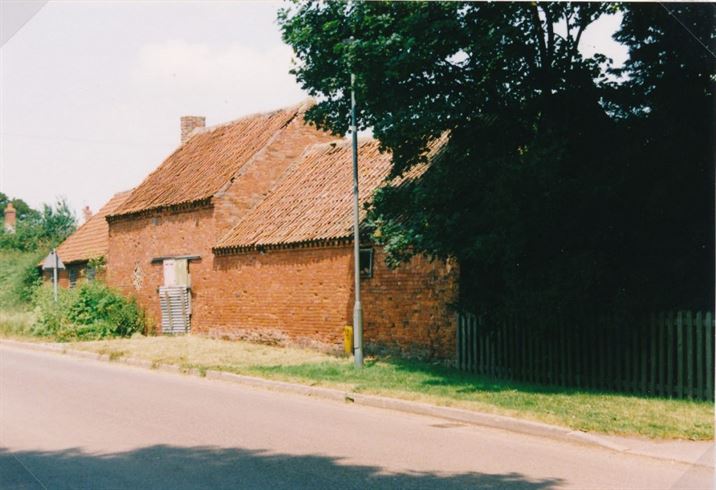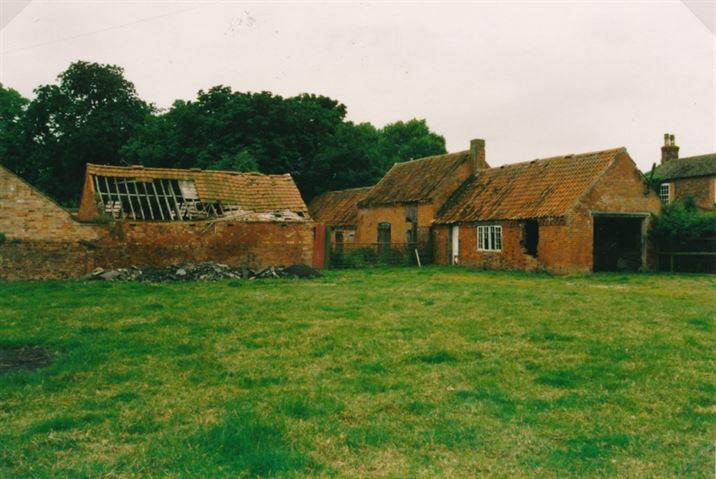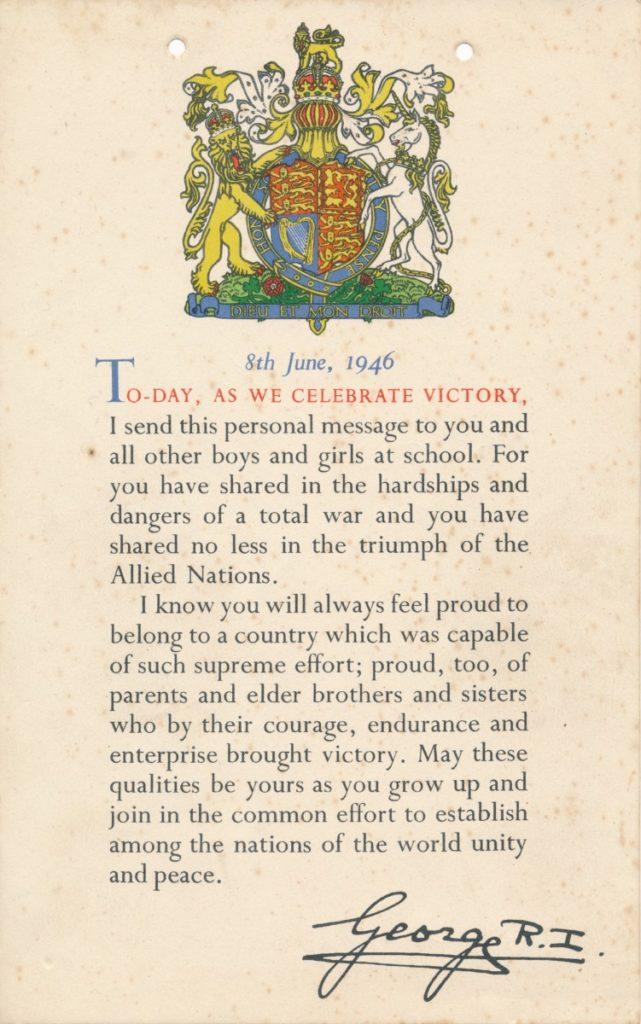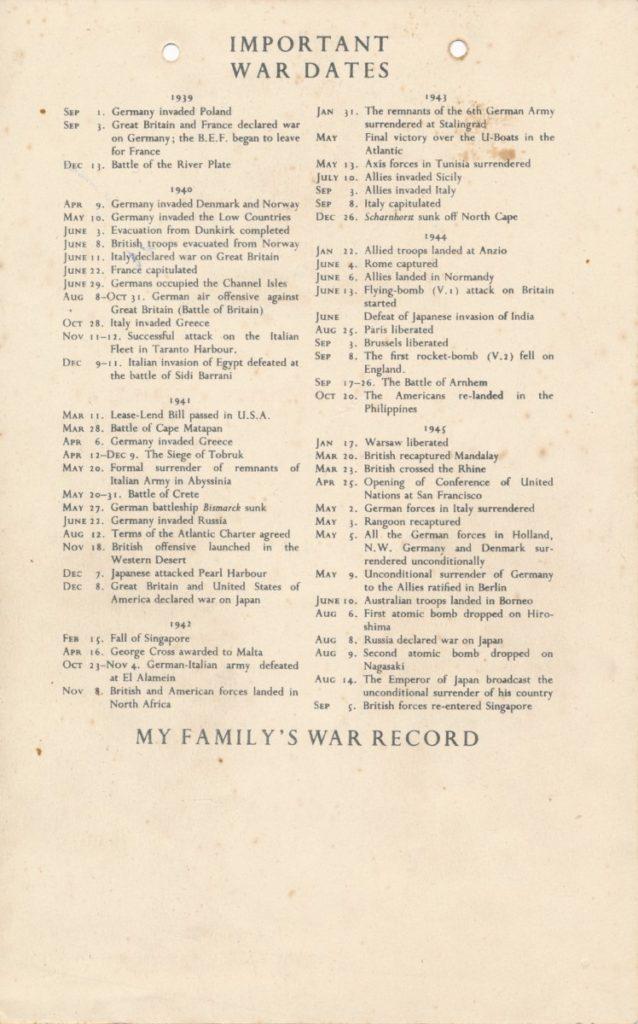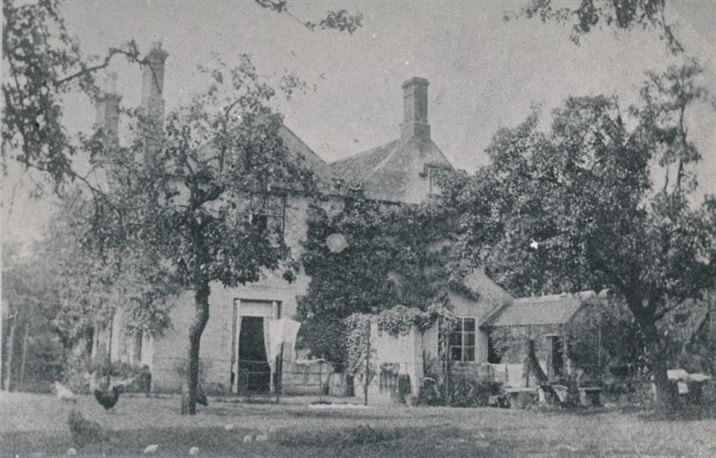
Like most rural communities formal education for all children didn’t come to Hickling until the mid-1800s. However, there would have been informal arrangements within the community for those who were willing to learn and there was provision for those who were able to pay for schooling.
Early references:
Occasional references have been found from the 1600s onwards which indicate a school or school master in Hickling but with little detail; these are likely to have been associated with the Church and the Rectory – with a school room in the Rectory itself or in the Rectory grounds which would have been a small private educational establishment (see below).
In 1837 a grant of £30 funded the building of a National School on a small piece of land between The Green and Main Street; in the 1870s this was enlarged and became a National School (see Village School page).
- Will and inventory – Robert Mann: In the Name of God Amen. The fifth day of September in the Year of our Lord 1728. I Robert Mann of Hickling in the County of Nottingham Currier being very sick and weak of Body but of sound and perfect Mind and Memory, Praise be given to Almighty God therefore, do make and constitute this my present last Will and Testament in manner and form following (…) Item I give to the School of Hickling the Sum of Five pounds being now in the Hands of Widow Hopkinson Relick of John Hopkinson late deceas’d and the Interest thereof to be payd Yearly to the Schoolmaster forever. (p. 16 Scrapbook of Hickling)
- Chris Granger (A History): “8 June 1669. Samuel Atkins was charged with teaching schools without a licence but he had already gone away to another part of the country.”
- James Henry 1747 of Hickling will and inventory: Item I give to my sister Mary Man my three oxgangs of land lieing in Hickling fields aforesaid to her and her heirs for ever she paying five pounds and [sic] yeare to the poor of Hickling and likewise three pounds a yeare to the school in Hickling for ever Likewise my will is that she shall pay five pounds to my cousen Jane Collishaw
- Butler Robert 1748 of Hickling will and inventory: Bond 15 April 1748, bound Thomas Butler of Hickling farmer and Robert Morriss of Hickling schoolmaster for £600, condition Thomas Butler executor to administer will and produce inventory.
- Morris John 1751 of Hickling inventory and bond: Bond 12 April 1751, bound Margaret Morris of Hickling widow and administratrix of John Morris yeoman deceased, Robert Morris of Hickling school master and Richard Watson of Hickling tailor £500, condition bound Margaret Morris to administer estate and produce inventory
- Eite James 1751 of Hickling will and inventory: Bond 12 April 1751 £15, bound James Eite yeoman of Hickling executor and Robert Morris of Hickling schoolmaster, condition that James Eite shall administer will and produce inventory. James deceased stated to be Cordwainer
- Chris Granger (Appendix 3): Incidentally, in about 1772 Joseph Westby left ten pounds in trust to pay for a Church schoolmaster. And, “In the tower hangs the list of legacies to the church and towards the provision of a schoolmaster.”
- Chris Granger (A History): On 13 June 1825, a terrier was prepared detailing the church property which included, “Item Two stables, the one 16 feet by 10 and the other 16 feet by 14, a barn 1t feet by 24, a School-house 10 feet by 31, a small pig sty and yard, an open cattle shed 60 feet by 12 and house for (pullen) all of them built of Brick and covered with Pantiles, a square Dove Cot 19 feet by 14 built of brick and Thatched, a Coal house 12 feet by 14, a Shoe house 12 feet by 11 both built with brick and covered with blue slate.”
- Chris Granger (A History): Canon Ashmall wrote: The marble tablet placed on the outside of the West Wall facing the village street bears the following inscription:
- In ever loving memory of seven brave lads educated in this School who fell in the Great War, 1914-1918: John Faulks, Stephen Crump, Jack Hill, Charlie Simpson, Cecil Simpson, William Salt, Samuel Doubleday
- It is interesting to know that the work was by Mr Tom Drake, stonemason of Melton Mowbray, who was himself a fellow student of those commemorated.
The Weir Academy.
The Weir Academy was located in the house now known as Weir House (formerly, Hill View) on the corner of Main Street and Clawson Lane.
The Scrapbook of Hickling (p70): “In 1848 John Featherstone bought and lived in the house shown [above] which was then known as Weir House. Here he opened a school known as Weir House Academy. The school room was the large room with the French windows open. Payment was one or two pence per week to cover the cost of books, slates and slate pencils etc. Mr. Featherstone died in 1898 at the age of 85.”
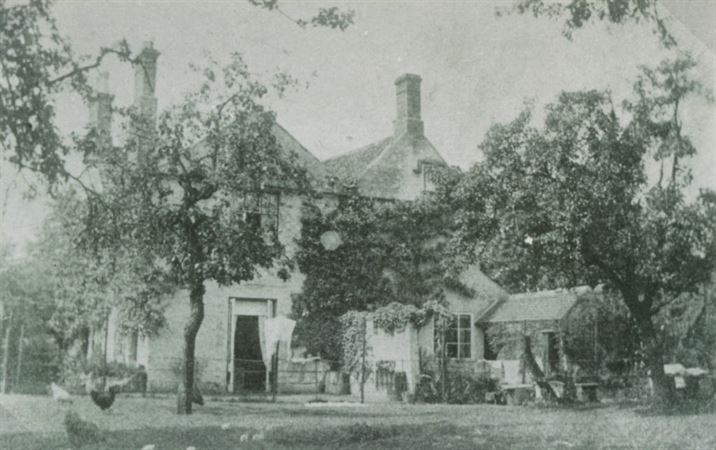
Reflections of Yesteryear (p.37): “In 1848 Mr. John Featherstone bought and lived in what is now known as Hill View, home of Mr. & Mrs. P. Cane. He opened the Weir House Academy, a school of which payment of one or two pence per week was required. Mr. Featherstone was apparently a very hard man and when his patience was tried he took a savage delight in beating his pupils. One of the subjects taught was land surveying and one day Mr. Featherstone, having business of his own, sent the boys unattended to survey a large field in the parish through which flowed the little river on which Hickling stood. In order to check the boys work Mr. Featherstone had previously ascertained the dimensions of the field, and one of the boys managed to abstract the paper from his desk. Armed with this, the boys, on arrival at the field, took off their clothes and proceeded to enjoy themselves in the water. Mr. Featherstone arrived in the middle of the fun, which ended abruptly! If Mr. Featherstone was a beast he could be a just beast. On one occasion, irritated by the persistent inattention of the class, he shouted, “the next boy I see with his eyes off his book I shall thrash within an inch of his life” A few minutes passed , and one of the boys called out “please Sir, Bell’s eyes are not on his book” “and where were your eyes, pray?” said Mr. Featherstone “come up here” the boy went, then to return to his seat considerably chastened and less inclined to tell tales in the future. Mr. Featherstone died in 1898 at the age of 85 years.“
(Note: Mr Featherstone is also closely linked to records for the Board School (including the accounts and ledgers) making it difficult to be sure whether anecdotes relate to the Board School or The Weir Academy)
The Rectory Schoolhouse and The Institute.
It is likely that the various Rectors of Hickling organised or undertook schooling in various ways over time. At one end of the spectrum, this would have involved education in the classics and the art of becoming a gentleman for the sons of local families; if girls received any education it would have been in their own homes either from a governess or tutor or from their parents. Depending on the incumbent at the time, there may also have been informal arrangements for the children of poorer families.
There are also records of both a Church and a Chapel Sunday School in the village for religious teaching and these would have involved all children in the village.
Ken Cadogan Rawlinson wrote in his account of the history of The Rectory that, “… various outbuildings were added, notably the stable block and schoolhouse between 1837 and 1887. The schoolhouse was used as a classroom for the small private school run by the rector in the late C19th for the children of clergy whose parents had died or were overseas. They were accommodated in the attic bedrooms and the bell used to call them down for meals is still in place. During this period an extension to the farm outbuildings was erected for use as a ‘parish meeting room’, known locally as The Institute.”
Both the Schoolhouse and The Institute are still standing; since 1990, both have been converted to residential use but they retain many of their original features.
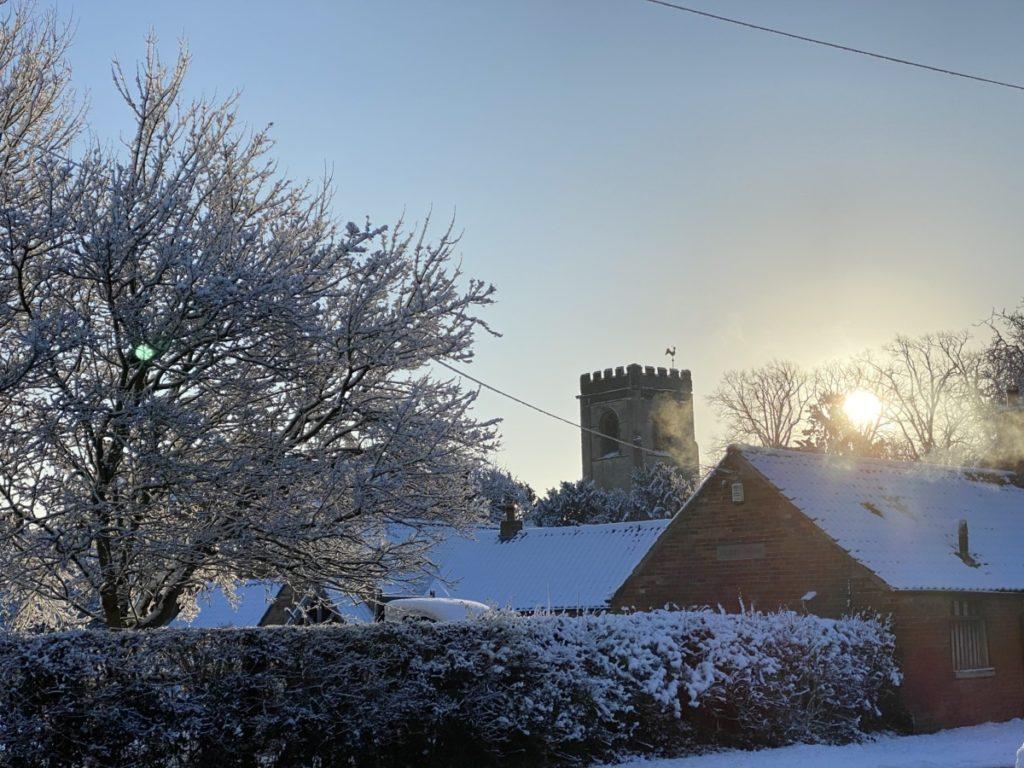
The Institute was built at some time between 1837 and 1887 as an extension to the Rectory outbuildings. Designed to be used as a parish space it was established by the Rector who, in tune with the sentiments of the late Victorian period, wished to promote adult education in a Christian context. Newspaper reports of talks and events indicate fundraising for overseas missionaries as well as discussions about the affairs of the day. However, such lectures and events were just as likely to be held at the School or at the Wesleyan Chapel; with events at the School including a 5-week veterinary course for local farmers.
Most indications are that this was an important space for the men of the village to gather and it was the home of the Men’s Guild for many years (with a billiard table) but it was also a venue for women’s events such as sewing meetings in the afternoon, for Sunday School events, for Temperance Society events and as a wet weather venue for Rectory events.
We don’t know when the Institute fell into disuse but the latest newspaper clipping that we have records a WI meeting in March 1936.
- February 1895: Vocal and instrumental music, readings, recitations were given in the Board School Room, the room being tastefully decorated. Music was performed by the Hickling and Nether Broughton Brass Band. Sale of tickets realised £4. One third for institute funds and two thirds to be distributed amongst the poor of the Parish. Tickets 2/- each. (Scrapbook of Hickling)
- November 1897: An entertainment of songs, glees, readings etc. were given by members of the Glee Club in the institute. Proceeds were for funds for the institute. (Scrapbook of Hickling)
- February 1903: On Thursday afternoon last, a sewing meeting was held in the Church Institute. Tea was given by Mrs James Collishaw and was well patronised, about thirty being present. The usual fortnightly sewing meeting was held in the Wesleyan Schoolroom on Thursday. In this case tea was given by Mrs Ernest Shelton. (Wadkin files)
- October 1903: A magic-lantern lecture for the opening of the winter session of the Church Temperance Guild was held in the institute. The Rector presided. (Scrapbook of Hickling)
- April 1904: On Thursday the 8th inst. the last of the sewing meetings for the winter months was held in the Church Institute. (Wadkin files)
- March 1906: Mens Guild. A lecture was given in the institute by the Rev. Pimm of Colston Bassett. (Scrapbook of Hickling)
- Sunday school was held in the day school after which the children walked down to Church for the morning service. Following the arrival of Canon Ashmall in 1905 the Sunday school was held in the men’s institute in the morning and the Church in the afternoon. (Reflections of Yesteryear)
- At Christmastime mothers of the Sunday school children were invited to tea held in the institute when crackers were pulled. Prizes were then awarded according to yearly marks. (Reflections of Yesteryear)
- A number of local men played billiards and also held meetings in this building. During the early 1900s the Sunday morning Sunday School was also held here. (Wadkin files)
The Institute in the News (Wadkin Archive)
Sunday Schools:
(example extracts – full transcriptions will be added to Church & Chapel pages)
Reflections (p.18): Sunday school was held in the day school after which the children walked down to Church for the morning service. Following the arrival of Canon Ashmall in 1905 the Sunday school was held in the men’s institute in the morning and the Church in the afternoon. For the Summer treat, as the outing was always called, the Sunday school children were taken by horses and carts to Nottingham where they transferred to steamers on the Trent to their destination of Colwick Park. Other treats followed during the summer, to Belvoir Castle and Bunny Park. In later years these treats were held on the Rectory lawn and took the form of tea and games. The following day a flower and egg service was held in the Church, the gifts were then taken to Nottingham General Hospital. At Christmastime mothers of the Sunday school children were invited to tea held in the institute when crackers were pulled. Prizes were then awarded according to yearly marks. On Shrove Tuesday the children were given an orange which was indeed a great pleasure. For children attending the Methodist Chapel, the Sunday school commenced at ten o ‘ clock where Mr. Alwyn Shelton was the superintendent. The highlight of the year was the Sunday school anniversary held on the last Sunday in June. The platform was erected in three tiers on which the children sat in their very best or new clothes. The girls wearing a new ribbon in their hair. The Chapel was packed with people both for the afternoon and evening services with extra forms placed along the aisles and in the porch. The following day, which was a half day hOliday from school, a children’s tea was held in the Chapel schoolroom, any children from the village were invited to attend. This was followed by a public tea at five o ‘ clock. Games took place in Home Close, Mr. Dickman’s field opposite Clawson Lane. The children of both Sunday schools felt extremely proud the day they were considered old enough to join the adult choirs in their respective Churches. Mr. Alwyn Shelton ran a choral society which he conducted with Miss Hilda Brooks (later Mrs. Harold Burnett) playing either the organ or piano. Selections from ‘The Messiah’ and ‘The Crucification’ amongst others were sung in both Church and Chapel. The Society also sung at Nether Broughton, Kinoulton, Long Clawson and Willoughby Churches. A Band of Hope, again run by Mr. Shelton, met in the Chapel schoolroom. Children joining signed ‘The Pledge’ which meant no drinking of alcohol during one’s lifetime. Recitations and dialogues were given by the children.
Reflections (p.36) Miss Florence Munks (known as Dot because she was so small) was the daughter of Mr. & Mrs. Charlie Munks of Rosedene. Dot went to stay with her grandmother [at Japonica House] – Elizabeth Doubleday – for a few days and stayed for the rest of her life. After the death of Mrs. Doubleday in 1927 Miss Munks remained in the house. She was in the Church choir and following the death of her friend Miss Corner became the Church organist. During the 1940 ‘ s and 50’s the Sunday school was held in the front room of her home. Miss Munks always said that she never went to bed the same day she got up. In the Summer time she would regularly be arranging flowers on her families graves in the churchyard when St. Luke’s clock struck midnight.
Maggie’s Memories (p.43): I don’t suppose it is generally known that a Sunday School was started on Hickling Pastures, when Canon Ashmall was the encumbent. I remember, because my music teacher at that time, Miss Warren and her mother started this Sunday School. All the children living on the Pastures were invited, and every Sunday the children met in the front room of Mrs. Warren’s bungalow over a field on the Pastures, it was hoped one day to build a small school on the Pastures but sadly it has not materialised. Around Christmas Miss Warren organised a concert by her music pupils and the Sunday School children, it was given in her front room, those helping in the concert were invited to tea in the “Warren’ Kitchen, including Canon Ashmall, after tea we took forms, chairs and stools into the front room and soon the room was filled with Dad’s, Mums, big brothers and sisters, and anyone from the Pastures all ready for the concert to begin. The School children sang songs and hymns and recited, the music pupils played pianoforte solos and duetts, organ solos, violin solos, I always accompanied Miss Warren on the piano when she played the violin. I sang two solos with Miss Warren accompanied on the piano. Miriam Squires always played an organ solo. At the end of the concert Miriam and I walked home in the dark, Mr.Warren walked part of the way carrying his stable lantern, and he never spoke one word to us. Now Miss Warren, ‘Nancy’ is one of our oldest friends. I often wonder if the present Rector Rev. L.P. Harwood has ever heard of the Sunday School which was started by Mother and Daughter in their bungalow on Hickling Pastures.

